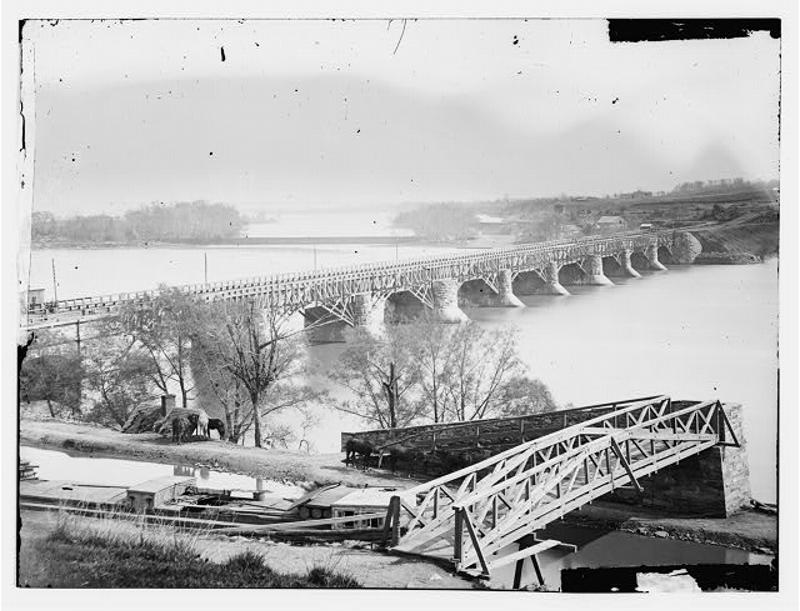 |
| The Aquaduct Bridge at Washington |
HEADQUARTERS DEPARTMENT OF THE EAST,
New York City, February 18, 1864.
Major General H. W. HALLECK,
General-in-Chief:
GENERAL: All our information from the South indicates that he leaders of the rebellion are making the most desperate efforts to bring into the field every man capable of bearing arms at the opening of the campaign in the spring. The rapid increase of our debt, bringing with it the dangers to which the public credit is always exposed under the pressure of heavy expenditures, the long continuance of the war, and the importance of terminating it as soon as possible render it incumbent on us to put forth all our strength as soon as military operations can be resumed. I suppose we must have a very large force in forts and entrenchments, including the city of Washington, and this force out of active employment must be considerably augmented by troops in the interior of the loyal States-like those, for instance, guarding prisoners at Johnson's Island.
It has occurred to me that all these troops might be relieved by the local militia of the loyal States, and that thus a strong addition might be made to our active force.
I have no doubt that a great number of regiments would volunteer during the spring and summer for service at Baltimore, in the entrenchments at Washington, and in all the forts in all our harbors. I think at least ten regiments could be obtained in this State for such a service, and that the other loyal States would contribute as liberally.
It is hardly to be expected that the President's order for a draft will bring out the number of men called for, and in any event the measure proposed could hardly be otherwise than salutary.
I have taken the liberty of making this suggestion, with the assurance that if the plan could be carried out an overwhelming force might be thrown upon the enemy and the war brought to a successful conclusion during the year 1864.
The great stake the country has in such a speedy issue of the conflict will, I am sure, be regarded as a sufficient apology for calling your attention to the subject.
I am, very respectfully, your obedient servant,
JOHN A. DIX,
Major-General.
Official Records, Series III., Vol. 4, Part 1, Page 121.
Dix makes a point too little appreciated in histories of the conflict. Debt levels in the North were reaching critical points in 1864. In addition, there was a war weariness which had to be accounted for in an election year. Dix felt it was critical to press the issue rather than allow the war to continue and wanted to supplement Union forces in the field by taking veteran troops out of the defenses of Washington and replace them with state militias. Dix does not mention, but it is worth stating, the Union had another method to get more men into the field, the utilization of African-American troops. At this juncture of the war they represented a weight for which the Confederacy had no counterbalance.
No comments:
Post a Comment